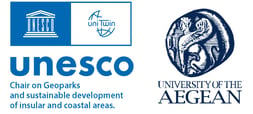LECTURERS
Before the course, get to know your lecturers a little better!
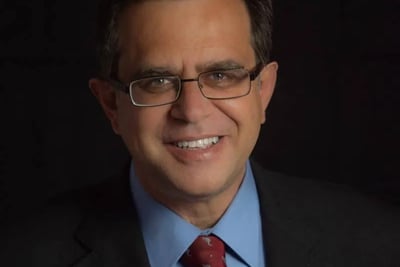

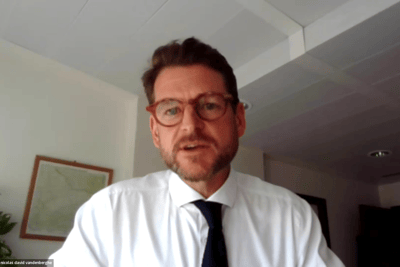

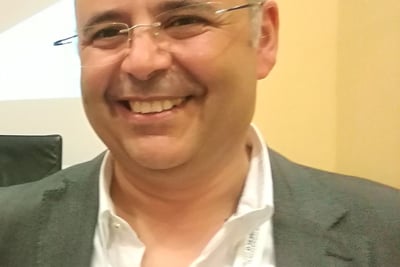

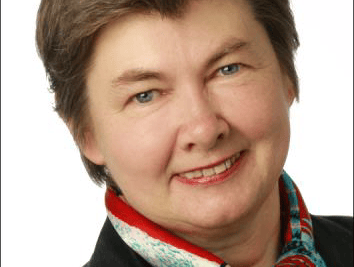

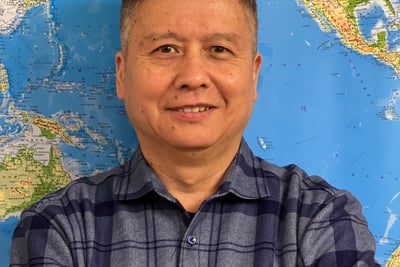

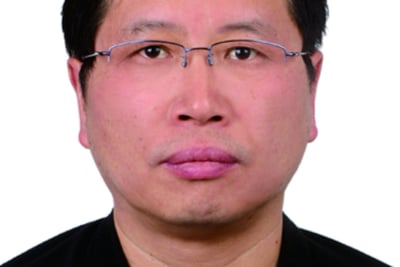

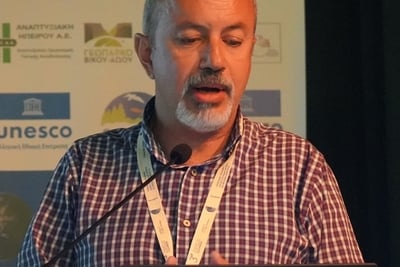

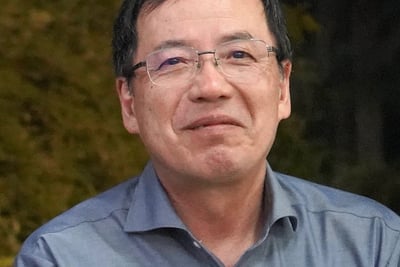

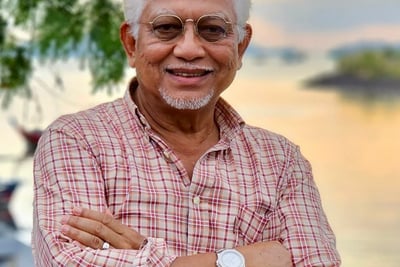

Kristin Rangnes
She is the General Manager of Gea Norvegica UNESCO Global Geopark. She is Treasurer of the Executive Board of the Global Geoparks Network (GGN) and member of European Geoparks Network (EGN) Advisory Committee since 2012, Vice-coordinator of the EGN (2013- 2018) and EGN Coordinator EGN (2018 – 2022).
She is member of Global Geoparks Network (GGN) Bureau (2013-2015) and the GGN Treasurer since 2014. She is member of Norwegian Committee for Geoparks and geoheritage and Coordinator of the Committee since 2023.
Nikolas Soulakellis
He is Professor of Thematic Cartography and Geoinformation at the Geography Department of the University of the Aegean, Greece since 1996. In that Department he is teaching courses in thematic cartography and G.I.S. at the undergraduate and postgraduate level. He acted as the Head of the Department from 2008 until 2010. His research interests are focusing on data collection, data processing and fusion for cartographic purposes especially in Aegean island regions.
He is also the director of the Cartography and Geoinformation Lab of the Department of Geography. From 2010 until 2014 he served as Vice Rector of Academic Affairs and Student Welfare at the University of the Aegean. Dr. Soulakellis has leaded on many projects funded mainly by European Union.
Driss Achbal
Driss Achbal is member of the Executive Board of the Global Geoparks Network (GGN). He is laureate of the UNESCO Chair at Mohamed 5 University in Rabat, Morocco. He is specialist in natural resource management, environmental protection and sustainable development and doctoral researcher at USMS University in Beni Mellal. He works for the integration of UNESCO Geoparks concept as President of the M'Goun Geopark Association since 2019. Since then, great efforts have been made to ensure the emergence of the M'Goun Geopark as an essential vector of territorial development. He is president of the African UNESCO Global Geoparks Network of between 2020 and 2023 and active member of the Executive Board of the Global Geoparks Network since 2020.
He was the 1st person in charge of organizing the 10th UNESCO International Geoparks Conference in Marrakech 2023.
He is member of the Moroccan National Commission for Education, Science and Culture.
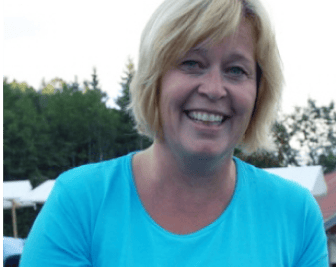

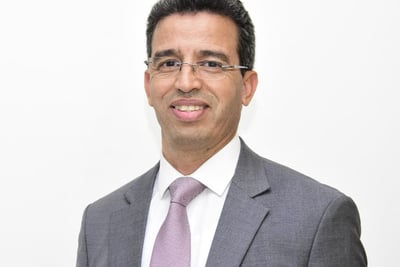

Nickolas Zouros
President of the Global Geoparks Network
Dean of Social Sciences Faculty, University of the Aegean UNESCO Chair on Geoparks and the sustainable development of insular and coastal areas.
He is Professor of the Department of Geography and he has teaching experience for more than 25 years at the undergraduate and postgraduate courses.
He is Director at the Natural History Museum of the Lesvos Petrified Forest since it’s foundation in 1995 with main duties the protection, research and promotion of the Petrified Forest of Lesvos, a National Natural Monument.
He worked for the management of the Lesvos Petrified Forest protected area, and the development of geo-conservation, geo-tourism and sustainable local development as well as geo-education with special emphasis on geohazard awareness raising and sustainable local development.
He was the Coordinator of the Lesvos Geopark since 2000.
Nickolas Zouros is one of the founders of the European Geoparks Network in 2000. In 2003 he was elected Coordinator of the European Geoparks Network and re-elected till 2018.
He contributed to the development of the Geoparks in many countries. Since 2004 Nickolas Zouros has worked closely with UNESCO to promote and develop the Geopark concept in Europe but, increasingly, in other parts of the world as a member of the Bureau of the Global Geoparks Network (GGN). In June 2014 he was one of the founders of the GGN Association and he contributed significantly to the establishment of the UNESCO Global Geoparks in the frame of the International Geosciences and Geoparks Programme.
He is author of more than 100 scientific articles in international journals and conferences proceedings and author of 10 books on Geoparks, Geo-conservation and Geo-tourism.
Kristof Vandenberghe
Kristof Vandenberghe is the Chief of the Section for Earth Sciences and Geo-Hazard Risk Reduction and Secretary of the International Geoscience and Geoparks Programme since June last year. Before that he was the Chief of the Executive Office of the Natural Sciences Sector at UNESCO for two years and he was science advisor in the cabinet of the Director-General of UNESCO.
Kristof joined UNESCO in 2011 in the Bureau for Strategic Planning but started his career in the Research and Development Department of the Ministry of Agriculture and Fisheries of Flanders (Belgium) and moved into the Foreign Affairs Office, where he worked as a diplomat representing the Flemish Government to UNESCO, the OECD and the Council of Europe. He obtained a degree in bioscience engineering at the University of Ghent.
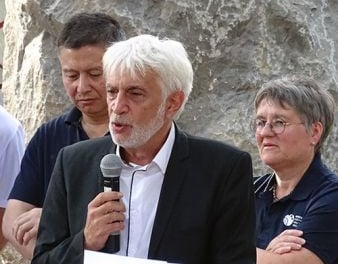

Guy Martini
Guy Martini is a geologist with a background in anthropology. In the 1980s, he was one of the founders of the French National (and also international) movement for conservation in the Earth sciences. He was the President of the French Network of National Geological Reserves (1985-1995), a member of the Malvern Task Force, and the General Secretary of the first International Symposium on Geological Heritage Conservation, which is at the origin of the "International Declaration of the right of the Earth's Memory" (1991).
In his work, Guy Martini is continually striving to connect territories with art, culture, sciences, and sustainable development. In this respect, he led one of the first European programmes dedicated to a policy on territorial sustainable economy (1994-1997), which is based on the promotion of local heritage and geological heritage. In 1996, after a meeting in China with Nicholas Zouros, he developed and led a first European Programme bringing together four European territories to experiment and develop the concept of Geoparks. This programme later allowed the launching of the European Geoparks Network (2001), leading to the successful development of UNESCO Global Geoparks.
In the history and evolution of UNESCO Global Geoparks' development, Guy Martini is one of the main founding members. He has held a huge number of conferences, organized workshops and written numerous publications on Geoparks all over the world. He has actively supported the creation of many UNESCO Global Geoparks worldwide (South America, Africa, Asia, etc.). He is today the General Secretary of the Global Geoparks Network and chairperson of the UNESCO Global Geoparks Council.
Artur Abreu Sá
Associate Professor with tenure at the Department of Geology at the University of Trás-os-Montes and Alto Douro (Portugal). Chair Holder of the UNESCO Chair on “Geoparks, Sustainable Regional Development and Healthy Lifestyles”.
Member of the Executive Board of the Global Geoparks Network (GGN). Scientific Coordinator of the Arouca UNESCO Global Geopark (UGGp). UNESCO Senior Evaluator for UGGps. Member of the scientific councils of the UGGps of Arouca, Terras de Cavaleiros, and Estrela (Portugal), Molina and Alto Tajo (Spain) and Araripe (Brazil). Advisor nominated by UNESCO for the “UNESCO Global Geoparks Network Grant for Geoparks in Africa and the Arab States” Program to tutor the Baringo Geopark Project (Kenya).
Evaluator in 15 evaluation/revalidation missions of UGGps in territories of Belgium, Bolivia, Brazil (2), Canada, China (2), Ecuador, Netherlands, Indonesia, Japan, Russia, Thailand, and Vietnam (2).
Invited advisor for UNESCO on four missions to territories aspiring to UGGps in Vietnam, Kazakhstan, Mexico and Peru. President of the Portuguese National Committee for the International Geosciences Programme of UNESCO.
Author and co-author of 10 books, 46 book chapters, 103 articles in peer-reviewed scientific journals, and 203 abstracts in conference proceedings.
Marie-Luise Frey
She is a geologist. As member of the UNESCO Global Geoparks Excecutive Board (2016) and before the Global Geoparks Bureau (since 2004), external expert in the Advisory Committee of the European Geoparks Network (since 2003) with assessments, expertises and missions (e.g. Europe, China, Australia, South America). Dr. Marie-Luise Frey was responsible geologist to establish the first Geopark in Gerolstein / Volcaneifel 1994 worldwide. She has also given expertise to IUCN on geological World Heritage. Since September 2020 she is a new member of the UNESCO Global Geoparks Council.
She has studied at Rhenish Westfalian Technical University Aachen in Germany. Her main subjects have been Applied Geology with an PhD thesis on “Lime properties is respect to limestone facies on Upper Devonian Rocks, nearby Aachen, Germany”. She is since 2003 business manager of the “Messel Pit Non-Profit Ltd.” company. She has experience in geoparks since 1992. 10 years she worked as geologist in the Gerolstein-Vulkaneifel European Geopark (EGN), Germany, up to 2003. For more than 20 years she is business manager of the Welterbe Grube Messel gGmbH (Messel Pit World Heritage non-profit ltd. Company) in Messel, Germany. Educated in geology and natural sciences, she worked for nearly ten years as geoscientist in academia (Rhenish Westfalian Technical University of Aachen (RWTH) and since 1992, since more than 30 years expertise in popularising earth sciences for Geo-Education and Geotourism as expert for Global Geoparks Network and Messel Pit WH development.
Her special concern is strongly connected with the UNESCO World Heritage and Geoparks philosophy: to combine Earth history, nature, culture and arts as holistic approach, bringing together the different aspects and disciplines. Geotourism, science transfer, popularisation and geo-education, communication, networking and sustainable development are important additional parts of her advisory expertise.
Her orientation: connecting UNESCO World Heritage Sites and Geoparks to serve future generations needs by her world-wide expertise in existing and potential geopark territories and World Heritage Sites.
Jin Xiaochi
He is a Professor at Institute of Geology, Chinese Academy of Geological Sciences. He received his bachelor degree in 1982 (Nanjing University), master degree in 1985 (Chinese Academy of Geological Sciences), and doctor degree in 1994 (University of Cologne, Germany).
His research work has been mainly on the evolution of Tethys and the accretion of Asia, employing stratigraphic, sedimentologic, paleobiogeographic and regional geologic tools.
His involvement in the undertakings of geoparks started in 2000. He participated in the preparation and application of the first batch of Global Geoparks in China. He is an expert of Chinese Geoparks Network. He was a member of Advisory Committee of the Asia Pacific Geoparks Network (APGN) (2015-2017). He was a member of Global Geoparks Network (GGN) Bureau (Executive Board since 2014) and was elected Vice-President of GGN in 2016, and reelected in 2021. He was an initial member of UNESCO Global Geoparks Council (2016-2018). He was elected Coordinator of Asia Pacific Geoparks Network (APGN) in 2019 and reelected in 2022.
He is a senior evaluator of UNESCO Global Geoparks and a lecturer of International Intensive Courses on UNESCO Global Geoparks in Lesvos and Beijing.
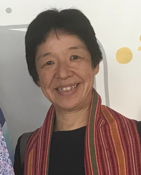

Kana Furusawa
She is the Secretary General of the Specified Nonprofit Organization Japanese Geoparks Network (JGN), the Secretariat of Japan Geopark Committee (JGC), Special Advisor of the Muroto UNESCO Global Geopark.
She studied at the Graduate School of International Development, Nagoya University and received master degree in 1995.
She started to work for geoparks in 2013 as a Coordinator for International Relations in Muroto UNESCO Global Geopark. She became a member of Advisory Committee of the Asia Pacific Geoparks Network (APGN) in 2017 and elected as a Vice Coordinator of the APGN in 2022. She was elected as a member of GGN Executive Board in 2021.
Jianping ZHANG
Professor and director of Geoheritage Research Center, China University of Geosciences, Beijing, China Member of the GGN ExB since 2016 Vice chairperson of the UNESCO Global Geoparks Council (2018-2022) Member of the UNESCO Global Geoparks Council (2024-2028) Vice chair of IUGS International Commission on Geoheritage (2020-2028) Research interests: invertebrate paleontology, paleoecology and ichnology (trace fossils), geoheritage investigation, assessment, protection and conservation, as well as geopark application, building, promotion and international cooperation Geopark-related work: taking part in the establishment of the Chinese Geoparks Network, notably, the formulation of a series of regulations and guidelines for investigation, planning, application and building for national geoparks in China; chaired and guided in many UNESCO Global Geoparks applications, building and other activities International activities: participated almost all international geopark-related conferences and symposia, including: one of major organizers for the First International Congress on Global Geoparks in Beijing, 2004, chair of the scientific committee of the 5th APGN Symposium in 2017, member of the APGN Advisory Committee from 2017 to 2019, UGGp senior evaluator since 2014; speaker in many global geopark capacity-building events (Lesvos, Langkawi, Thailand and Hong Kong), coordinator for Beijing international Training Course on Global Geoparks Management and Development since 2016.
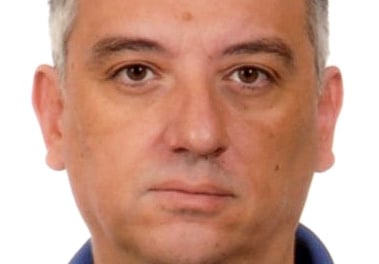

Ilias Valiakos
Ilias Valiakos, is a Ph.D. geologist, and has been working since 1999 at the Natural History Museum of the Lesvos Petrified Forest and currently holds the position of the head of the Research Department of the Natural History Museum of the Lesvos Petrified Forest. Since 2000 he is a member of the European Geoparks Network Coordination Committee, he is Elected Member of the Advisory Committee of the EGN, Vice Coordinator of the Hellenic Geoparks Forum and senior evaluator of the Global Geoparks Network with 37 evaluations and revalidations in Europe, Latin America, North America, Africa and Asia. He is member of the scientific working group of various National and International initiatives, concerning the geological and geomorphologic study of the Lesvos Petrified Forest, the development of geotourism in Europe, the creation of geological routes, the geotouristic infrastructure in geoparks, the protection of geological monuments, the creation of Atlas-Map of geological monuments in the Aegean, seismic hazard management in built environment using modern methodologies of geosciences, geosites assessment etc. He is author of several scientific articles and co-author of several books.
Charalampos (Babbis) Fassoulas,
Dr C. Fassoulas is curator of the Geological and Paleontological collections at the Natural History Museum of Crete and Special Teaching staff of the University of Crete, he holds a diploma in geology and a PhD thesis in structural geology and neotectonics. C.F. is the President of Psiloritis UNESCO Global Geopark, a member of UNESCO Global geoparks Council, and member of the Geoparks Committee of the Greek National Commission of UNESCO. He is member of many International and Greek geological and environmental Associations and Societies.
He has contributed as coordinator or researcher in more than 30 scientific and applied projects, and also in many studies related with geology, geoconservation, geomorphology, geo-hazards and rural development. He is author or coauthor in more than 60 articles in peer reviewed journals and publications and has participated in many congresses and meetings with about 100 abstract presentations.
Setsuya Nakada
Emeritus professor, the University of Tokyo, Japan
Director-General, Center for Integrated Volcano Research,
National Research Institute for Earth Science and Disaster Resilience (NIED)
He is a geologist/volcanologist, carrying out research on active volcanoes covering Japan, Northern Marianas, and Indonesia, strongly linking to forecasting volcanic eruptions and disaster risk reduction in volcanic areas. His involvement in geoparks started in 2008, and he was the chair of the steering committee of International UNESCO Conference on Geoparks (2012) in Shimabara, Japan. He has served as the Geopark evaluator since 2011. He is chairing the national committee of geoparks in Japan (Japan Geopark Committee), and the Advisory Committee of Global Geoparks Network (GGN). Since 2016 he has joined most of the GGN Executive Board meetings, advising to the GGN management and operation as the observer from the Advisory Committee.
Ibrahim Komoo
brahim Komoo, Professor Emeritus in Universiti Kebangsaan Malaysia (UKM); Distinguished Honorary Professor in Universiti Teknologi Malaysia (UTM); Chairman, Board of Governance, Universiti Putra Malaysia (UPM); Founder CEO/ Managing Director, Geopark and Geotourism Creative Solutions (GGCS) is an expert on Engineering Geology, Geoheritage Conservation, and Sustainability Science. He has been involved in global geopark development since 2003 as Bureau Member, Global Geoparks Network (2004-2012); Coordinator, Asia Pacific Geoparks Network (APGN)(2007-2016); Vice President, Global Geoparks Network Association (GGN) (2013-2023); Founder Vice Chair, UNESCO Global Geoparks Cauncil (UGGpC) (2015-2017); Advisor, Langkawi UNESCO Global Geopark (2012-2023); and Founder Chairman, National Geopark Implementation Committee, Malaysia (2013-2020). He has published more than 200 papers, chapter in books and books related to geoheritage, geotourism and geoparks.
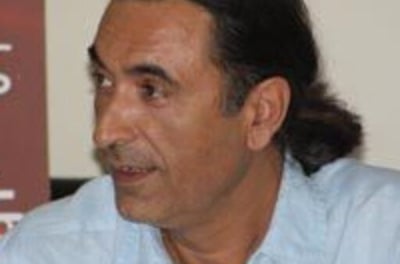

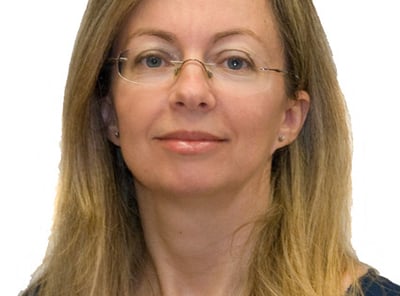

Konstantina Bentana
Konstantina Bentana is head of the Education and Communication Section of the Natural History Museum of the Lesvos Petrified Forest/Lesvos Island UNESCO Global Geopark and member of the International Institute on Geoparks Development (IIGEOD) University of the Aegean. She is Executive Assistant of the Global Geoparks Network Secretariat since 2018.
She is geologist (University of Athens/Department of Geology) and she received a master degree from the University of the Aegean/Department of Geography. She is PhD Candidate at the University of the Aegean with main research interest Geoscience Education and Education for Sustainable Development in Geoparks.
She is coordinator of the Working Group on Education of the Hellenic Geoparks Forum. She is member of the pedagogical team of the Hellenic National Thematic Network "UNESCO Global Geoparks in Greece" and the GGN & EGN Working Groups on Education. She is member of the Roster of Evaluators for UNESCO Global Geoparks.
She has participated in European and research programs and she is author of several scientific articles and co-author of several books.
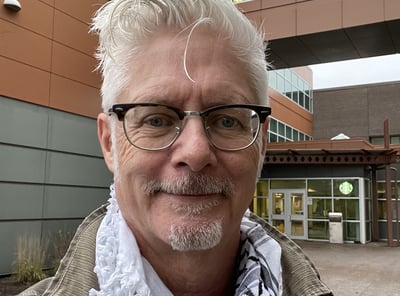

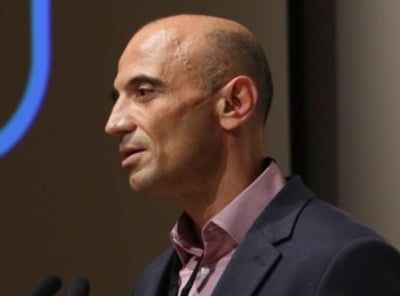

John Calder
John Calder is an elected member of the Global Geoparks Network Executive and past President of the Canadian Geoparks Network. He has served on the board of the CGN for the past decade. Dr. Calder has had a long career in geoscience focusing on geoheritage and community development and has received numerous medals and awards regionally and nationally, including the Ward Neale Medal of the Geological Association of Canada for excellence in communicating geoscience to Canadians. He pioneered geoheritage recognition in Canada, establishing a comprehensive geoheritage sites list for the Province of Nova Scotia.
Dr. Calder was the lead scientist in developing the nomination and interpretation centre for the Joggins Fossil Cliffs UNESCO World Heritage Site and later the Cliffs of Fundy UNESCO Global Geopark, where he served until recently as interim Executive Director. For over 25 years he has been part-time faculty member with the Department of Geology at Saint Mary’s University and is an Adjunct Professor at Dalhousie University.
Dr. Calder is a committed ally to Indigenous peoples and has ensured the equal treatment of Indigenous storylines and traditions in the Cliffs of Fundy Geopark.
Thanasis Kizos
He is Professor in “Rural Geography” in the Department of Geography, University of the Aegean since 2005 and the Head of the Department since 2020. He holds a bachelor in Agronomy from the Department of Agronomy of the School of Geotechnical Studies of the Aristotle University of Thessaloniki and a Ph.D. in Environmental Management and Policy from the Department of Environmental Studies of the University of the Aegean. He is the Head of the Department of Geography from 2019.
He is the Director of “PrecFarm: Laboratory of Rural Geography and Precision Agriculture Systems” and does research in Rural Development, Land Management and Precision Framing Systems. He has published in agricultural landscape change, land use planning, agroforestry, sustainable agriculture, biodiversity impacts of agricultural systems among other topics. European Union. Some recent projects he participates in are soil O-Live (https://soilolive.eu/), Terra Lemnia (https://terra-lemnia.net/en/), and SIPATH (Operationalizing Sustainable Agricultural Intensification Pathways in Europe).
He also participated in the past in the Project "Sustainable futures for Europe’s HERitage in CULtural landscapES: Tools for understanding, managing, and protecting landscape functions and values " (HERCULES) and LEDDRA (Land and Ecosystem Degradation and Desertification: Assessing the Fit of Responses; 2010-2014). Recently he published the book “Rural Development: Concepts, Practices and Policies” (2018) Tziola publications, Athens.
Jutta Weber
Dr. Jutta Weber is Managing Director of the UNESCO Global Geopark Bergstrasse-Odenwald (Germany).
She received her academic degree in geology and PhD in natural sciences at the University of Cologne, where she worked for several years as geoscientist in research and education.
The holistic approach connecting Earth history, nature, culture, heritage and people, which is the backbone of the Geoparks´ philosophy and the direct bridge to the 2030 Agenda for Sustainability, is one of her major concerns.
Based on the SDGs, she focusses on the sustainable development of Geoparks as regional platforms for landscape management and networking as well as geoheritage preservation and education for sustainable development.
Since 2002, she is delegate member of the European Geoparks Network (EGN) Coordination Committee and Individual Member of the Global Geoparks Network. She is catalyst of the EGN and GGN Working Group on the SDGs and facilitates the EGN newsletter as well as the EGN activities for the annual Mother Earth Day. As speaker of the Forum of UNESCO Global Geoparks in Germany, she is member of the GGN Advisory Board. Since 2005, she has operated numerous Geopark evaluation and revalidation missions worldwide as senior member of the UNESCO roster of evaluators. In cooperation with international organizations, she acts as lecturer, invited speaker, scientific partner and co-organizer of International Conferences.
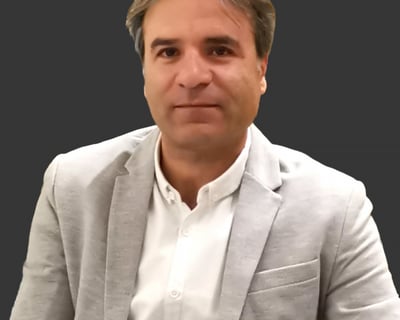

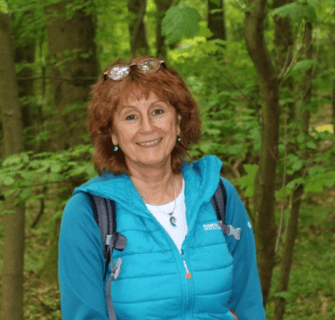

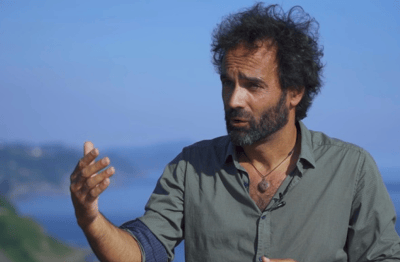

Asier Hilario
He is a PhD Geologist with a broad International expertise on Geoheritage, Geoparks, Geoconservation and Geotourism. His professional career is linked to the Basque Coast UNESCO Global Geopark since 2005 but he has participated in many national and international projects.
At present he serves a chairman of the International Commission Geoheritage of the International Union of Geological Sciences IUGS. Since 2022 he is successfully leading the IUGS Geological Heritage Sites global program (The Firts 100, The Second 100…) with more than 500 experts from over 100 nations involved. Strengthening the collaboration with UNESCO Global Geoparks and other international associations related to Geological heritage are within his main goals in this position. He is in charge of the IUGS desktop assessment for the international value of the geological heritage of aspiring UGGp. He is representing the IUGS at the Global Geopark Network Executive Board and UNESCO Geoparks Council.
His main activity is related to the communication, assessment and management of geological heritage at national and international level. He has published more than 50 national and international papers and 6 scientific and dissemination books. He has given more than 100 conferences and participated in more than 20 training courses about Earth sciences communication, Geoheritage, Geoparks and Geotourism all along the world.
He is an active member of the Scientific Board of the International Geosciences Program (IGCP)
Alireza Amrikazemi
He is currently serves as the Scientific Coordinator of Qeshm Island UNESCO Global Geopark. In addition to his role at the geopark, Amrikazemi is a member of the UNESCO Global Geoparks Council, the GGN and APGN Advisory Committees, and a senior evaluator for UNESCO Global Geoparks. He has a background in geology, geography, tourism, and regional planning.
Amrikazemi has extensive experience in Geoparks across western, central, and southern Asia. With over 20 years of professional expertise in geotourism, geoheritage, and geoparks, he believes these initiatives are crucial for fostering social and economic stability. Before his current position, Amrikazemi served as the Head of the Geoheritage Department at the Geological Survey of Iran for 17 years. Since 2020, he has established the National Iranian Geoparks Network. His efforts have played a pivotal role in promoting the concept of UNESCO Global Geoparks within Iran and the wider region, contributing significantly to capacity building.
Amrikazemi's contribution to the field extends beyond practical work. In 2004, he published his first book, titled 'Geotourism Atlas of Qeshm Island', which outlined the proposal for establishing the first geopark in Iran. This publication was groundbreaking at the time. On an international scale, Amrikazemi also serves as a reviewer for the Geoheritage Journal and Geoconservation Journal. Moreover, he has actively participated in and presented at numerous geopark-related events, including conferences, workshops, and seminars since 2002.
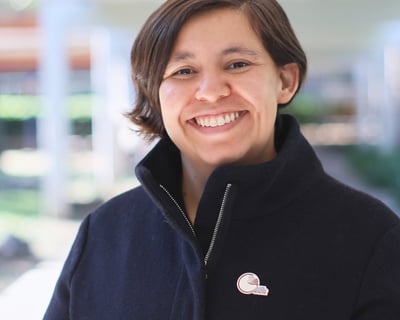

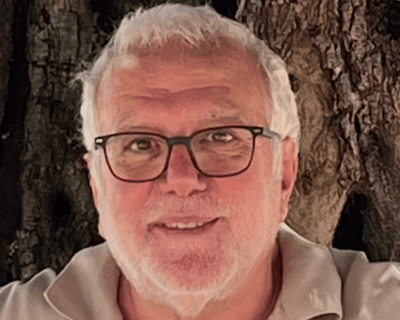

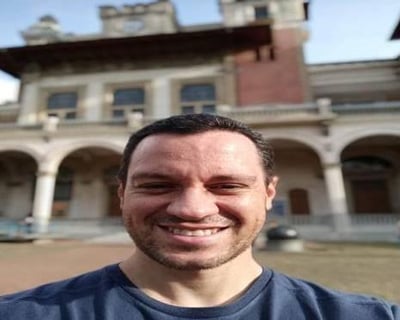

Thiago Marinho
Thiago Marinho is a paleontologist and Associate Professor at the Federal University of Triângulo Mineiro (UFTM), holding a Master’s degree, a Ph.D. and postdoctoral degree in Geology from the Federal University of Rio de Janeiro (UFRJ). His academic and scientific work focuses on Vertebrate Paleontology, Paleoecology, Geoconservation, and Geological Heritage, with emphasis on the Late Cretaceous of Brazil. Since 2013, he has been deeply involved in the Uberaba UNESCO Global Geopark and currently serves as its Scientific Coordinator. He is Vice President of the Brazilian Network of UNESCO Global Geoparks and a member of the Global Geoparks Network (GGN) working groups on Geological Heritage and Education. With over 60 scientific publications, his work integrates science, public policy, and education, promoting the recognition of Uberaba as a key territory for geological and paleontological heritage at the global level.
José María BARRERA MARTÍN-MERÁS
He holds a degree in Biological Sciences from the Complutense University of Madrid. He currently serves as Chief of the Sustainable Development Section at the Provincial Council of Cáceres, Spain, and is Director of the Villuercas-Ibores-Jara UNESCO Global Geopark. With a strong background in international cooperation and local development, he has worked with multi-professional and transnational teams across Europe and Latin America. He has played a key role within the Global Geoparks Network, serving as a member of the Coordination Committee of the European Geoparks Network since 2011, Vice-Coordinator and later Coordinator of the Spanish Geoparks Forum, and a member of the GGN Advisory Committee. He currently chairs the GGN Working Group on Education and is a member of the Task Force for the GGN Long-Term Strategy 2035, representing Villuercas-Ibores-Jara UGGp at the GGN General Assembly.
Emmaline M. Rosado González
She holds a degree in Geography from the National Autonomous University of Mexico (UNAM) and a Ph.D. from the University of Trás-os-Montes and Alto Douro in Portugal, earned under the auspices of the UNESCO Chair on “Geoparks, Sustainable Regional Development and Healthy Lifestyles.” She currently serves as Coordinator of the Latin America and Caribbean Geoparks Network and is responsible for the international networking of the Mixteca Alta UNESCO Global Geopark.Dr. Rosado is a professor at the Institute of Geography at UNAM, based in the Territorial Studies Unit in Oaxaca, where she leads research focused on sustainable development and local communities within the Mixteca Alta UNESCO Global Geopark. Her academic work encompasses territorial management and sustainability in UNESCO Global Geoparks, participatory and community-based action research, as well as the study of ancestral knowledge and indigenous peoples.
She is an Observer Member of the Executive Board of the Global Geoparks Network, an Associate Researcher at the Geoscience Centre of the University of Coimbra, and a Member of the Coordination Team of the UNESCO Chair on “Geoparks, Sustainable Regional Development and Healthy Lifestyles.”


Global Geoparks Network International Association
Musée Promenade, Montée B. Dellacasagrande, 04000, Digne les Bains, France
